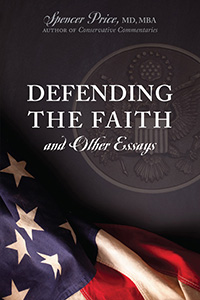War On Terror Or World War III
Monday, September 26th, 2016 @ 12:00PM
It might not be what you expected. After all, for nearly half a century, we were conditioned to believe that the next world war would consist of a nuclear exchange between the United States and the former Soviet Union.
Nevertheless, many are now beginning to refer (though some have been doing so for some time) to the War on Terror as World War III. As uncomfortable as that notion may be, it’s becoming more and more difficult to argue against.
Our traditional conception of a world war is based, of course, on the previous two world wars. In those conflicts, large armies from many nations clashed on battlefields across the globe (especially in WWII). Destruction was widespread and the death tolls were staggering. The introduction of new weapons and battle techniques changed the very face of war.
In many ways, such is the case with the War on Terror. Although insurgents are usually limited to small groups rather than large conventional forces, deaths at the hands of these terrorists (most often their own countrymen and women) have long since surpassed tens of thousands. Coalition forces have countered by developing advanced weapons (for example, laser-guided missiles or “smart bombs”) to limit collateral damage and new communication and surveillance systems to better track the elusive enemy.
As similar as things are, however, there are significant differences between the War on Terror and the previous world wars. First of all, and probably most importantly, is the absence of frontlines. In World War I and II, distinct battle lines existed. Rarely was there confusion about which force controlled what territory. Unfortunately, in our world fight against terror, distinct battle lines rarely, if ever, exist. Instead of great clashes on open ground, the War on Terror is intricately intermingled with civilians and civilian life. Also, unlike in the past when the enemy was obvious, insurgent terrorists often blend with the surrounding population making their identification and eventual apprehension difficult if not sometimes impossible.
Another significant difference between the War on Terror and World War I and II is the endpoint – the conclusion of the two world wars was distinct and obvious as agreements to suspend further hostile actions at specific points in time were reached among combatant forces. That, likely, will never be the case in the War on Terror. In fact, such a war could conceivably be a war without a foreseeable end.
Nevertheless, regardless of what it’s called, the war against terrorism is a war that must be waged. Appeasement only makes the aggressor more aggressive. As much as we might like to ignore the truth, burying our heads in the sand will never diminish the reality that a spirit of terrorism foments in the hearts and minds of disgruntled human beings from all corners of the world. It always has and it always will. We cannot make that unpleasantry disappear. We can, however, limit the impact terrorism has on our daily lives by facing the challenge head-on. Doing so is our moral duty.
Posted by Spencer Price
Categories: Latest Columns




